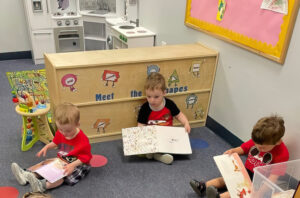
Creating a Daily Routine for Children in Preschools
Establishing a daily routine in preschools in aurora is essential for fostering a nurturing and effective learning environment. Routines provide children with a sense of security and predictability, which are crucial for their emotional, cognitive, and social development. This article explores the importance of daily routines, key components to consider, and practical steps for implementing an effective schedule that meets the diverse needs of young children.
The Importance of Daily Routines
Security and Predictability
Children thrive on routine. A structured daily schedule helps them understand what to expect throughout the day, reducing anxiety and promoting a sense of safety. When children know what comes next—whether it’s snack time or outdoor play—they can focus on engaging with their surroundings and peers rather than worrying about the unknown.
Developmental Benefits
Daily routines also support various aspects of development:
- Self-Regulation: Children learn to manage their time and activities, cultivating independence.
- Responsibility: Regular tasks, such as cleaning up after playtime, instill a sense of accountability.
- Language Development: Structured activities like circle time encourage communication skills and vocabulary expansion.
Key Components of a Daily Routine
Balanced Schedule
A well-rounded routine includes a variety of activities that cater to different developmental areas. Incorporating learning centers, free play, and structured group activities ensures that children remain engaged and stimulated.
Recommended Time Allocations
- Learning Centers: 30-60 minutes
- Free Play: 30-45 minutes
- Circle Time: 20-30 minutes
- Outdoor Play: 30-60 minutes
Developmentally Appropriate Practices
Tailoring routines to meet the needs of specific age groups is vital. For instance:
- Infants may require more frequent naps and feeding times.
- Toddlers benefit from short, focused activities interspersed with ample free play.
- Preschoolers thrive on longer periods of exploration and structured learning.
Play-Focused Activities
Active play is crucial for young children’s development. Incorporating sensory experiences—such as water play or sand activities—can enhance fine motor skills while keeping children engaged. Additionally, allowing for child-guided play fosters autonomy and creativity.
Structuring the Daily Schedule
Sample Daily Schedule Template
| Time | Activity |
| 7:00 – 8:00 | Arrival & Breakfast |
| 8:00 – 9:00 | Circle Time & Group Activities |
| 9:00 – 10:00 | Learning Centers/Free Play |
| 10:00 – 10:30 | Snack Break |
| 10:30 – 11:30 | Outdoor Play |
| 11:30 – 12:00 | Lunch |
| 12:00 – 1:00 | Nap/Quiet Time |
| 1:00 – 2:00 | Arts & Crafts |
| 2:00 – 3:00 | Story Time & Group Discussion |
| 3:00 – 4:00 | Free Choice Activities |
Flexibility in Scheduling
While a structured schedule is important, flexibility is equally crucial. Observing children’s interests and adapting the routine accordingly can lead to more meaningful learning experiences. For example, if children show a keen interest in animals during story time, extending that theme into the next outdoor play session can enhance engagement.
Implementing the Routine
Preparation and Organization
Effective implementation begins with thorough preparation. Educators should plan materials ahead of time and create environments that facilitate various activities. A well-organized space allows for smoother transitions between activities.
Involving Parents
Engaging parents in the routine is vital for consistency. Regular communication about the daily schedule helps parents reinforce similar structures at home. Consider hosting workshops or sending newsletters that outline daily activities and their developmental benefits.
Conclusion
Creating a well-structured daily routine in best preschools in aurora is fundamental to supporting children’s growth and development. By providing security, promoting independence, and fostering engagement through varied activities, caregivers can create an enriching environment that nurtures young learners. Ultimately, observing individual needs and adapting routines accordingly will ensure that each child thrives in their daycare experience.





